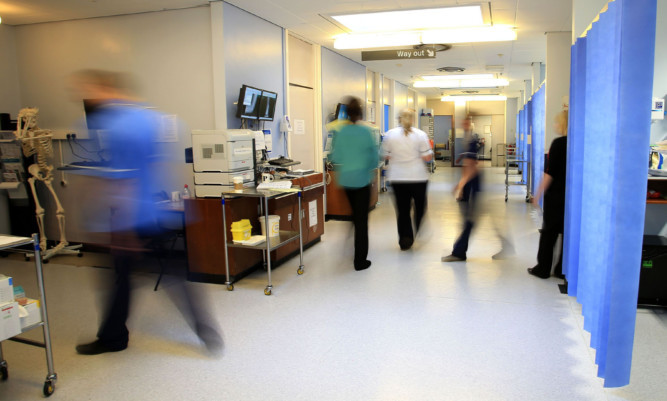Senior nurses working at an advanced level of nursing practice are crucial to the future sustainability of the country’s health service, according to a report.
The Royal College of Nursing (RCN) Scotland study says advanced nurse practitioners (ANPs) offer “huge potential” and calls for more recognition of their role.
It says action is needed at all levels if ANPs are to drive the changes needed to transform the way health services are delivered in Scotland and ensure they are sustainable for the future.
ANPs are highly qualified nurses who have the clinical expertise, theoretical knowledge and experience needed to work at an advanced level, and can act as a senior clinical decision-maker with the authority and autonomy to make complex decisions about a patient’s care.
The RCN Scotland study highlighted some of the benefits they bring to the health service, such as delivering “significant savings in the longer term by avoiding unnecessary hospital admissions, reducing the length of hospital stay, supporting discharge and cutting readmission rates”.
It said ANPs are bridging the gaps between acute and primary care, driving new ways of working to support vulnerable patients and communities that might otherwise lose access to valuable local services.
RCN Scotland director Theresa Fyffe, said: “There’s a huge and largely untapped potential for advanced nurse practice to contribute to, and lead, new ways of delivering health and care services to ensure they’re sustainable into the future.
“Our report today – and the accompany stories from those on the front line – provides substantial evidence of how ANPs currently in senior clinical decision-making roles are already contributing to the delivery of safe, high-quality, person-centred care in communities across Scotland and points a way forward for the future sustainability of our health services.”
The report made a number of recommendations, such as calling for a clear definition of the ANP role, and the development of nationally agreed standards for training, education and career development pathways for advanced nursing practice.
It also said that health boards and integration authorities should invest in the long-term development of ANPs, and that the Scottish Government, RCN and Scotland’s health and care organisations should work together to promote the role of advanced nursing practice, nationally and locally.
Scottish Conservative health spokesman Jackson Carlaw said: “This report highlights a number of alarming issues which simply cannot be brushed aside by the SNP Government.
“It is obvious that senior nurses make a huge contribution to our health service and their plight simply cannot be ignored.
“Yet again, this issue illustrates just how urgent the need is for an all-party agreement on a comprehensive plan to secure the future sustainability of Scotland’s NHS.
“The Scottish Conservatives are committed to the recruitment of 1,000 new nurses and midwives, paid for by reintroducing prescription charges for those who can afford to make a contribution.
“We have made our priorities clear; having more nurses is more important than spending tens of millions of pounds financing universal free prescriptions to higher rate taxpayers such as the First Minister.”
